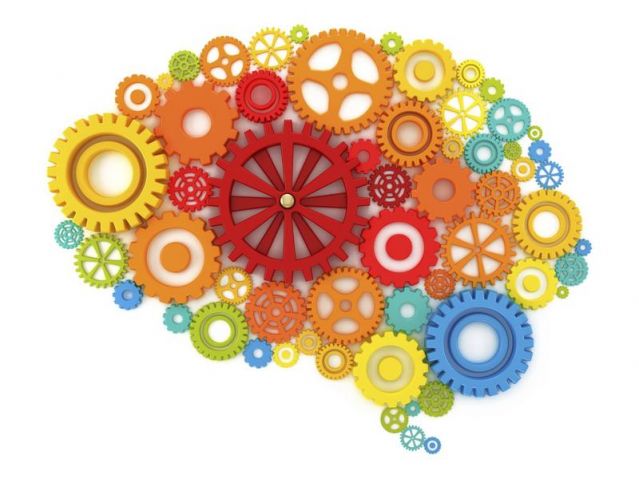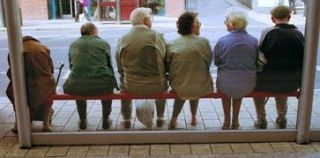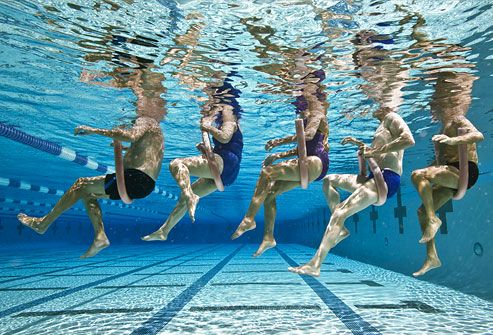Openness
Mental Training Boosts Cognition and Openness to Experience
Older adults who learned cognitive training skills benefited 10 years later.
Posted January 14, 2014
Cognitive decline has the potential to seriously affect quality of life as someone becomes older. Two recent studies have found that mental (cognitive) training not only improves an elderly person’s ability to perform everyday tasks, it makes seniors more open to new experience which has profound benefits for a person’s quality of life.
Researchers at Johns Hopkins University found that as few as 10 sessions of cognitive training improved an older person’s reasoning ability and speed-of-processing for up to a decade after the intervention. If someone received additional "booster" sessions over the next three years, the improvements were even more dramatic. The findings were published January 13, 2014 in the Journal of the American Geriatrics Society.
Dr. George Rebok, who was the lead author of the study said, "Showing that training gains are maintained for up to 10 years is a stunning result because it suggests that a fairly modest intervention in practicing mental skills can have relatively long-term effects beyond what we might reasonably expect.”
For the study the researchers created three intervention groups and one untrained control group with an average age of 73.6 years at the start of the study. These new findings are the result of a 10-year follow-up on a total of 2832 participants.
A Winning Triad: Memory, Reasoning, and Speed-of-Processing Training

Those in the memory training group were taught strategies for remembering word lists and sequences of items, text material, and the main ideas and details of stories. Participants in the reasoning group received instruction on how to solve problems that follow patterns, which is useful for tasks such as reading bus schedules or completing order forms. Individuals who received speed-of-processing training participated in a computer-based program that focused on the ability to identify and locate visual information quickly, which is useful when looking up phone numbers or reacting to changes in traffic when driving.
Training was conducted in small groups in ten 60 to 75 minute sessions over five to six weeks. The team also found that a four-session booster training at 11 and at 35 months after the initial training sessions produced additional and durable improvements in the reasoning intervention group and in the speed-of-processing group.

The most exciting aspect of these findings is that years later, participants in each intervention group reported having less difficulty with instrumental activities of daily living. The win-win aspect of this is that remaining sedentary and not exploring the world can create a downward spiral by creating social isolation, loss of fitness and a potential fear of falling. The benefits of cognitive training give older people the tools to be independent and confident which creates an upward spiral of well-being.
I have written numerous Psychology Today blog posts on how mobility, staying active and exploring the world keeps the cerebellum strong which helps maintaining balance, proprioception, creativity, and fluid thinking. Please see a list of additional PT articles I've written on this topic at the end of this post if you’d like to learn more.
About 60% of trained participants compared with 50% of controls were at or above their starting level of function regarding daily tasks such as using medications, cooking, and managing their finances. Memory performance improved up to five years following the intervention. Reasoning and speed-of-processing trained participants showed significant improvements relative to controls in the trained skills even after 10 years.

"Our findings provide support for the development of other interventions for senior adults, particularly those that target cognitive abilities showing the most rapid decline with age and that can affect their everyday functioning and independence. Such interventions have potential to delay the onset of difficulties in daily functioning," said Dr. Rebok. He added that even small delays in the onset of mental and functional impairments may have a large impact on public health and help reduce rising health care costs.
Cognitive Training Increases Openness to Experience in Older Adults
A study from January 2012 found that a training program designed to boost cognition in older adults also increased their openness to new experiences demonstrating for the first time that a non-drug intervention in older adults can change a personality trait once thought to be fixed throughout a person's lifespan.

Joining a new exercise class requires openness to experience.
Openness to experience is one of five major personality traits known as the ‘Big Five.” Previous studies have suggested that the other four traits (agreeableness, conscientiousness, neuroticism and extraversion) operate independently of a person's cognitive abilities. But openness—being flexible and creative, embracing new ideas and taking on challenging intellectual or cultural pursuits also requires cognitive function.
Navigating the world enriches the mind, engages the body and improves social connectivity, which is a fundamental ingredient to well-being throughout a lifespan. Remaining resilient and self-reliant in old age requires physical strength, joie de vivre as well as crystallized and fluid intelligence. The combination of mental training and openness to experience creates a winning combination.
The study, published in the journal Psychology and Aging, gave older adults a series of pattern-recognition and problem-solving tasks and puzzles that they could perform at home. Participants ranged in age from 60 to 94 years and had the cognitive training tailored to match their own pace, but the getting more challenging tasks each week as their skills improved.
Gradually bumping up the challenge as your skills improve is the key to creating flow and finding the sweet spot between boredom and anxiety. Striking the perfect balance between challenge and skill is the secret to sticking with it and steadily improving with every type of training.
"We wanted participants to feel challenged but not overwhelmed," said University of Illinois educational psychology and Beckman Institute professor Elizabeth Stine-Morrow, who led the research. "While we didn't explicitly test this, we suspect that the training program—adapted in difficulty in sync with skill development—was important in leading to increased openness. Growing confidence in their reasoning abilities possibly enabled greater enjoyment of intellectually challenging and creative endeavors."

This study challenges the assumption that personality doesn't change once one reaches adulthood, said Illinois psychology professor and study co-author Brent Roberts."There are certain models that say, functionally, personality doesn't change after age 20 or age 30. You reach adulthood and pretty much you are who you are," he said. "There's some truth to that at some level. But here you have a study that has successfully changed personality traits in a set of individuals who are (on average) 75. And that opens up a whole bunch of wonderful issues to think about."
Conclusion: A Little Cognitive Training Goes a Long Way to Improve Quality of Life
The Athlete’s Way is dedicated to identifying daily habits that improve your well-being, happiness and performance throughout a lifespan. These new studies are exciting because they illustrate how a small amount of cognitive training can create a domino effect that improves your quality of life across the board. Additional studies will be helpful to fine-tune the most effective cognitive training for producing long lasting benefits on day-to-day functioning for older adults.
Dr. Rebok and his team are also interested in testing whether the training sessions can help older adults maintain safe driving skills, which is key to remaining connected to the world in non-urban environments. The research team at Johns Hopkins are also going to explore how more extensive cognitive training over a longer period could have even greater benefits on elders' daily functioning.
If you'd like to read more on this topic please check out my Psychology Today blog posts:
- “Mobility Is Key to Maintaining Social Networks As We Age”
- “Too Much Crystallized Thinking Lowers Fluid Intelligence”
- “Stepping Outside Your Comfort Zone Keeps You Sharp”
- “Can Physical Activities Improve Fluid Intelligence?"
- “Social Connectivity Drives the Engine of Well-Being”
- “Optimism Stabilizes Cortisol Levels and Lowers Stress”
- “Can Mindfulness Backfire?”
- “Positive Actions Build Social Capital and Resilience”
- “Exercising at a “Conversational Pace” Is Good for Your Brain”
- “4 Lifestyle Choices That Will Keep You Young”
- “Fear of Falling Creates a Downward Spiral”
- “What Daily Habit Can Boost “Healthy Aging” Odds Sevenfold?”
- “Why Does Overthinking Cause an Athlete to Choke?”
Please follow me on Twitter @ckbergland for updates on The Athlete’s Way blog posts.




